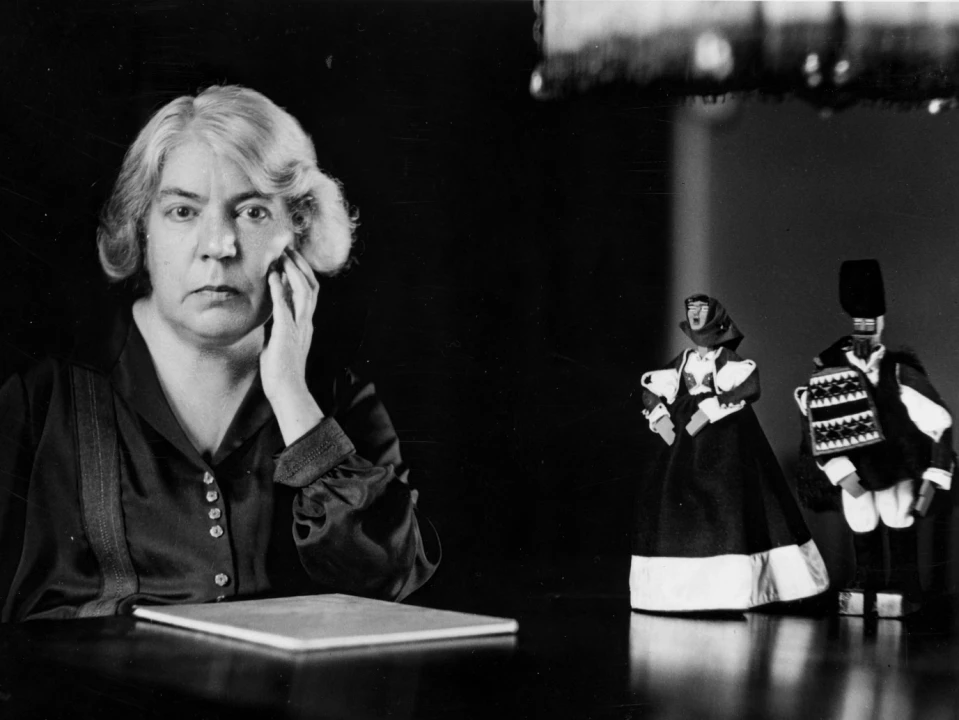The Christmas Gift (Il Dono di Natale) is a book written in 1930 by the Italian (Sardinian) author Grazia Deledda (1871 - 1936). She studied literature on her own and started writing when she was very young following the inspiration provided by Sardinian peasants and their struggles.
One of the features of her work was the presence of a strong connection between places and people as well as feelings and environment. She described her native land of Sardinia and permeated it with its own myths. She gained fame not only in Italy, but also abroad and in 1926 she was awarded the Nobel Prize for literature.
Grazia Deledda was particularly fond of Christmas and to her this holiday represented – both materially and symbolically – the idea of closeness and exchange at its very best.
“The author describes the Christmas atmosphere through a mix of visions, scents and feelings that celebrate the Christmas spirit and the immense warmth it can give off”.
Deledda’s book leads the readers into a winter wonderland village during Christmas time, where villages covered in snow resemble the nativity scene and the houses are sweetened by the smells of roasted meat on skewers and baked honey cakes. It tries to recreate that magical and precious moment of Christmas Eve in which everything is perfectly matched, and time stands still.
The book is a novella that tells old traditions from Sardinia. It has been described as “a genuine tale that touches and moves with deep and universally shared values. The Gift of Christmas describes feelings and moods that evoke atmospheres made up of traditions, home, family, and anticipation, typical of the Christmas season. A tale ostensibly for children, it nevertheless engages an audience of all ages”.
This story goes back in time to a small pastoral village in Sardinia. It’s Christmas Eve and the whole town is covered by snow. Anticipation and trepidation accompany the characters, while they eagerly wait for Christmas and for a mysterious and joyful gift.
The story unfolds around two families, and the protagonists are respectively Felle and Lia, two kids who have grown up together. Felle is an eleven-year-old boy and the youngest in the Lobina family. Lia is cheerful and curious. They are both preparing to live the most magical night of the year, but they are doing so in different ways.
Felle’s father has recently died and the whole family is waiting to meet the boyfriend of their only daughter; they are all involved in preparing a family Christmas dinner.
Felle is also eagerly waiting for a present that, according to the tradition, his sister’s fiancée is supposed to give her when he meets the whole family at dinner, to which he is accompanied by his grandfather.
On the other hand, Lia’s family is enjoying a more intime environment waiting for a mysterious present.
The five Lobina siblings are coming back home from transhumance – as tradition – and on their way, they are all thinking about how they can best impress their future brother-in-law, who happens to be a very handsome and wealthy man, opposed to the humble origins of the family. As soon as the fiancée and his grandfather arrive, the whole village is called to attend the Mass by the bell’s ring. The joyful and hopeful Christmas spirit is therefore poured into the streets of the small village.
In the name of sharing and generosity that characterize Christmas, Felle’s mother tells him to bring a piece of meat to their neighbors so that they too can enjoy a different kind of dinner.
“Everything is told in a simple but effective way, giving us back the images of a small, magical place. Felle's arrival home, his greeting to Lia, the smell of the house that smells of sweets and warms hearts, the home hearth and rhyming songs take us back to familiar atmospheres that we often seem to have forgotten in the daily hustle and bustle”.




